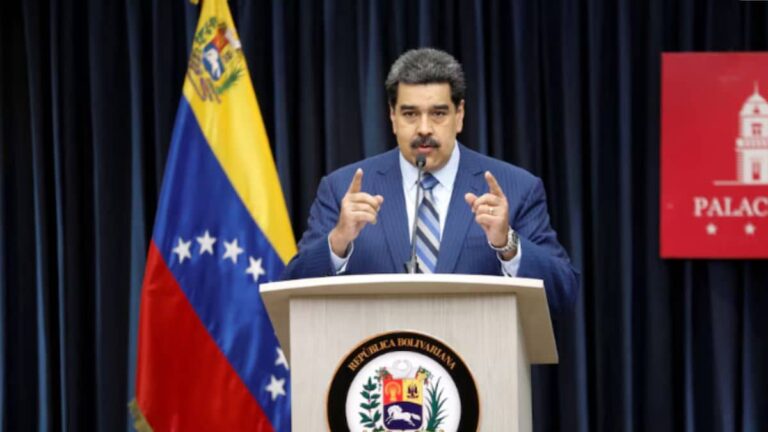Venezuelan President Nicolas Maduro is seeking a third term. Reuters
Venezuela’s presidential election is scheduled for Sunday (July 28). Incumbent President Nicolas Maduro, in power since 2013, is seeking re-election against a backdrop of economic crisis and widespread discontent.
The elections in oil-rich Venezuela and the global reaction to their results are likely to be crucial for India as well.
Here’s how to do it:
Venezuelan oil to India
Venezuela has the world’s largest proven oil reserves, estimated at around 303 billion barrels.
India is one of the few countries capable of refining Venezuela’s heavy crude oil, and Indian companies have long-term contracts to import Venezuelan crude, diversifying India’s crude oil supplies from the Middle East and Russia, which are currently facing great uncertainty due to ongoing conflicts.
India became the largest buyer of Venezuelan crude oil for two consecutive months, December 2023 and January 2024, based on vessel shipping and ship-tracking data, The Indian Express reported.
However, India’s oil imports from Venezuela have been intermittent due to sanctions imposed on the country by the United States, mainly due to President Maduro’s failure to adhere to democratic principles.
Potential for improvement in oil trade
Under the leadership of President Nicolas Maduro and his predecessor Hugo Chavez, the country’s oil production and economy plummeted due to mismanagement and corruption, it said. Deutsche Welle. Maduro’s continued leadership could mean prolonged economic hardship and sanctions.
His tenure has already seen hyperinflation, rampant crime and mass emigration, with more than 7 million Venezuelans leaving the country since he took office.
The upcoming presidential elections are crucial. Opposition candidate Edmundo Gonzalez Urrutia has promised reforms to revive the oil sector and attract international investment. His term could lead to increased production and more stable oil exports to India.
The outcome of the election could have a major impact on Venezuela’s ability to exploit its oil resources.
Opinion polls have shown a tough environment for President Maduro and there has been widespread discontent among the opposition, but concerns about the fairness of the election persist because of Maduro’s history of undermining the democratic process, including by disqualifying opposition candidates and using state resources to influence voter behavior.
Sanctions threaten again
The US sanctions against Venezuela are likely to be adjusted depending on the outcome of the upcoming presidential elections. The Biden administration has indicated it will “adjust” its sanctions policy depending on whether the elections are fair or not.
If President Nicolas Maduro cast a fair vote, the United States could ease some of the sanctions, but if he claims victory without providing concrete evidence of a legitimate process, it could lead to further sanctions.
At the start of 2024, sanctions were eased, allowing Indian companies to buy Venezuelan oil. But in April, the United States reimposed sanctions on Venezuela’s oil sector after President Nicolas Maduro failed to deliver on election promises.
Washington, however, said it would allow some companies to trade and operate in Venezuela. Reliance Industries reportedly received U.S. approval to resume imports of Venezuelan crude, which previously accounted for 90 percent of India’s Venezuelan crude imports.
However, if the situation worsens, it cannot be denied that sanctions could become even stricter.
In a nutshell
The outcome of Venezuela’s presidential elections is crucial for India’s energy security. While a change in leadership could revitalize Venezuela’s oil sector and ensure stable supplies to India, a reelection of President Maduro under questionable circumstances could prolong the economic crisis, maintain tough sanctions, and complicate India’s oil imports from the region.
Information provided by the institution
Find us on YouTube
subscribe

